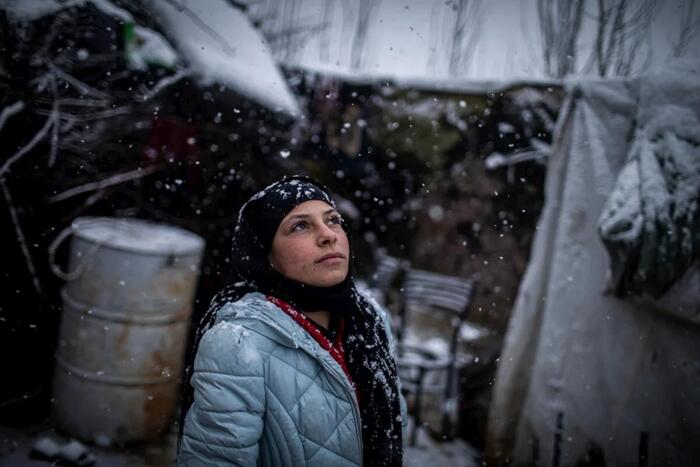
Millions of people from Ukraine, Afghanistan and across the Middle East displaced by conflict or persecution could face a perilous winter as freezing temperatures add to the misery already induced by spiralling prices, the lingering impact of the COVID-19 pandemic and extreme weather linked to the climate crisis.
Many displaced families will have no option but to choose between food and warmth as they struggle to heat their shelters, source warm clothing, and cook hot meals.
Across the Middle East, many displaced Syrians and Iraqis will have to contend with extreme cold and snowstorms once again. This will be the 12th consecutive winter in displacement for many. UNHCR estimates that 3.4 million Syrian and Iraqi refugees and internally displaced people in Syria, Lebanon, Jordan, Iraq and Egypt will need critical assistance to prepare for and cope with winter.
In Lebanon, where the severe economic crisis is pushing everyone to the brink, nine out of 10 Syrian refugees are already living in extreme poverty, forcing them to reduce food consumption and suspend seeking medical care. Many are falling further into debt as they try to cover their basic needs.
Millions of Ukrainians uprooted from their homes by the current war are facing winter in displacement or are living in damaged homes or in buildings ill-suited to protect them from the biting cold, with disrupted energy, heating and water supplies and lost livelihoods.
In Afghanistan, where winter temperatures can easily plunge to -25 degrees Celsius across parts of the country, many displaced and conflict-affected families will be left exposed to the elements. Winter arrives amid a steep economic decline, and only months after June’s earthquake in south-eastern Paktika and Khost provinces, in which thousands of people experienced devastating loss and damage to their homes.
Source:UNHCR